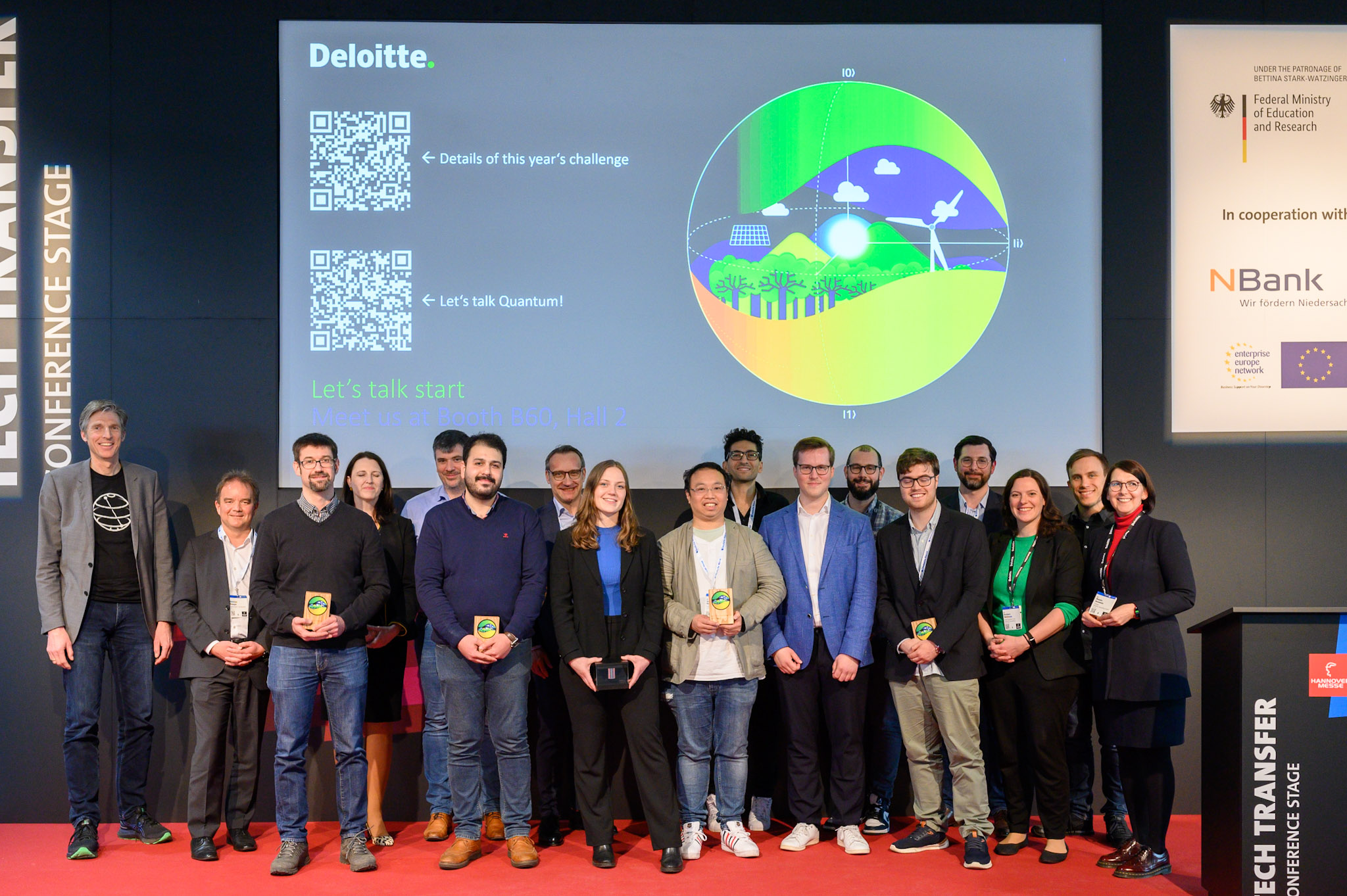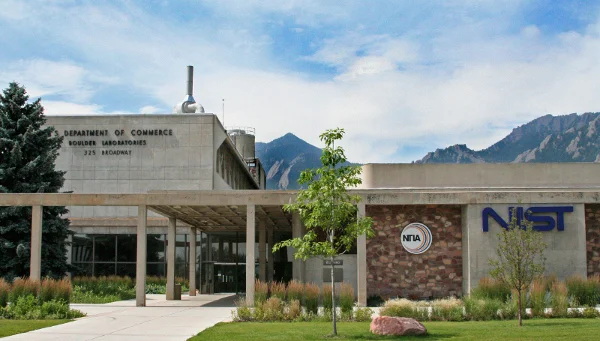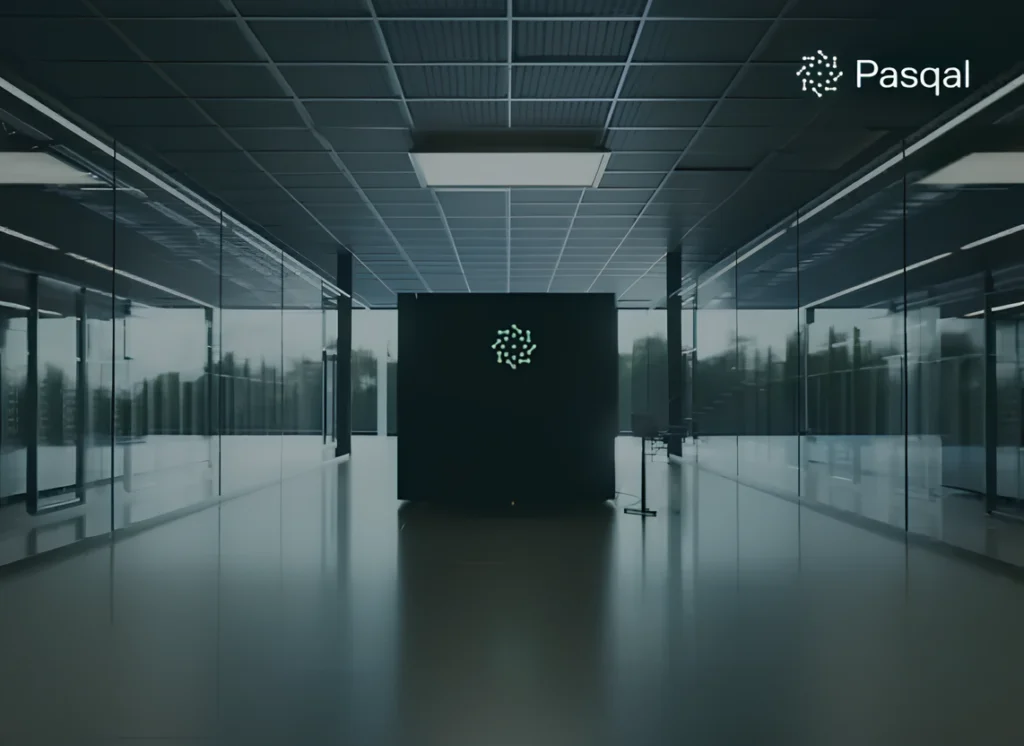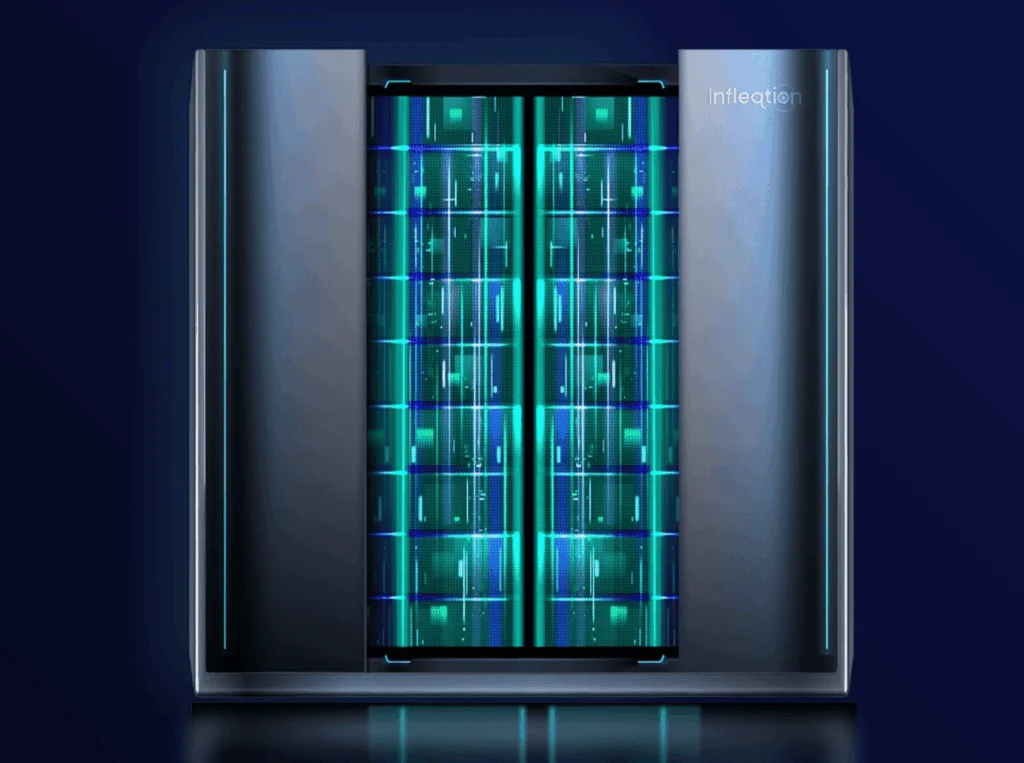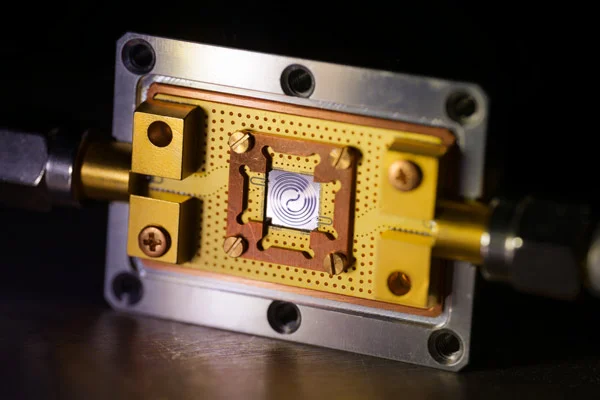Team EcoQult wins the Deloitte’s Quantum Climate Challenge
- Belgian start-up prevails
- Contribute to the fight against climate change
- Pitch event live on the Hanover Fair stage
Munich, 05. May 2023 — Leverage Quantum Computing for a better future: That is the idea behind Deloitte’s yearly Quantum Climate Challenge. This year the focus was on quantum simulation of chemical reactions. Team EcoQult convinced the jury and won first prize. The team consists of three employees from the Belgian start-up qBee, which deals with quantum computing for chemical applications.
“I would like to congratulate all participants for their submissions and ideas and the EcoQult team for winning the first Deloitte Quantum Climate Challenge. Their approach shows in a very direct way what possibilities quantum computing already offers and what relevance this technology field will have in the future,” says Renata Jovanovic, Partner & Sector Lead Energy, Deloitte’s Global Quantum Computing Ambassador & Sponsor of the Quantum Climate Challenge.
Team EcoQult calculated the dissociation energy of multiple ion-gas systems using multiple classical and quantum algorithms. Potential energy curves were calculated with respect to distance and angular orientation. Results were compared with respect to resource requirements, run-time and accuracy of the solutions. For a larger system, a hybrid classical-quantum algorithm was proposed and implemented. In this hybrid algorithm, the energy of a six ions and six gas molecule system was first calculated using a

computationally efficient classical method. Local corrections were then performed by the VQE that showed the best accuracy for the simplified one ion – one gas molecule system.
The second place was won by Team JetiX – Their solution was focused on improving the VQE algorithm to extend its capabilities. They used a de parameterization ansatz in combination with an initial point setter to potentially speed up the optimization loop within VQE. A reduction in circuit complexity and number of iterations until convergence without decreasing the accuracy of the solution was demonstrated. For scale-up, density-matrix embedding was proposed and tested for a smaller system.
Team QuantuX, who won third place, followed a software-engineering approach by developing a VQE pipline that allows the hyperparameters of the VQE algorithm – such as choice of ansatz, basis set, qubit mapping and optimizer – to be set using a dictionary fed into one function instead of constructing the VQE step by step. They envision an automatic hyperparameter setting for given chemical systems and have shown initial step.
Behind them on fourth and fifth place are Team Entangled Cats and Marc Maussner.
Quantum computing for materials research
Deloitte’s 2023 Quantum Climate Challenge aims to explore how quantum computing can help improve materials used in the direct capture of carbon dioxide from the air. Over 120 participants from five continents took part in the challenge, formed teams and developed 15 promising ideas. To do this, the teams used a total of 130 hours of computing time on a quantum computer, sometimes with 27 qubits, to immerse themselves deeply in the simulation of chemical reactions. The main focus of the teams’ assessment was how metal-organic frameworks can be used in direct air capture by calculating the potential energy surface area of atmospheric gas molecules near their preferred binding sites.
About Deloitte
Deloitte provides industry-leading audit and assurance, tax and legal, consulting, financial advisory, and risk advisory services to nearly 90% of the Fortune Global 500® and thousands of private companies. Our professionals deliver measurable and lasting results that help reinforce public trust in capital markets, enable clients to transform and thrive, and lead the way toward a stronger economy, a more equitable society and a sustainable world. Building on its 175-plus year history, Deloitte spans more than 150 countries and territories. Learn how Deloitte’s approximately 415,000 people worldwide make an impact that matters at www.deloitte.com.
Deloitte refer to one or more of Deloitte Touche Tohmatsu Limited (“DTTL”), its global network of member firms, and their related entities (collectively, the “Deloitte organization”). DTTL (also referred to as “Deloitte Global”) and each of its member firms and related entities are legally separate and independent entities, which cannot obligate or bind each other in respect of third parties. DTTL and each DTTL member firm and related entity is liable only for its own acts and omissions, and not those of each other. DTTL does not provide services to clients. Please see www.deloitte.com/about to learn more.
If you found this article to be informative, you can explore more current quantum news here, exclusives, interviews, and podcasts.

